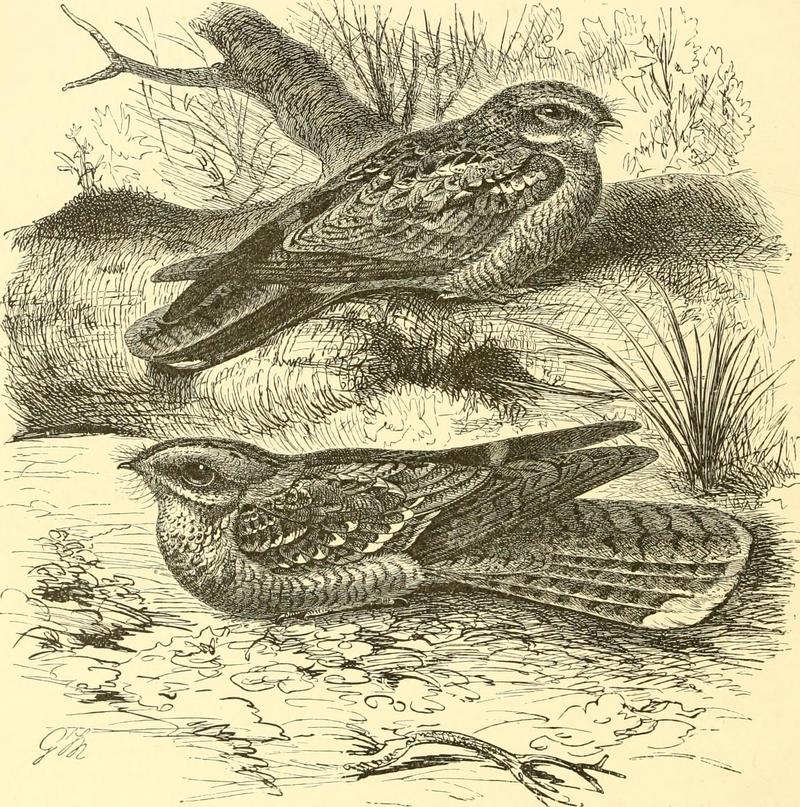|
| 질의: european nightjar | 결과: 41번째/47 | |
Eurasian nightjar (Caprimulgus europaeus), red-necked nightjar (Caprimulgus ruficollis)
| 제목: | Eurasian nightjar (Caprimulgus europaeus), red-necked nightjar (Caprimulgus ruficollis)
| | 올린이: | Wiki Photos (---@---.---)
| |

| 해상도: 1964x1982
파일크기: 949736 Bytes
등록시간: 2017:03:07 11:53:34
|
Description
Title: The royal natural history
Year: 1893 (1890s)
Authors: Richard Lydekker, 1849-1915 Philip Lutley Sclater, 1829-1913 W. B. Frostick, former owner. DSI Brooks, W. T., former owner. DSI
Subjects: Zoology Natural history
Text Appearing After Image:
COMMON AND RED-NECKED NIGHTJARS (f liat. size). collar, which has gained the species its familiar name of red-necked. It inhabitsthe countries of South-Western Europe and Northern Africa, nesting in Spain,Algeria, and Morocco; migrating occasionally into Southern France; and it haseven reached Great Britain on one occasion, but its winter-quarters are unknown.The food of the nightjar consists entirely of insects, in pursuit of which the birdmay be seen flying over the heather or the fields in the twilight, often, as it flies,producing a clapping noise, apparently by striking its wings together above itsback, like a pigeon. The churring note which the birds make is familiar to all NIGHTJARS. 43 dwellers in the country, and hence its name of churn-owl, l)y which it is knownin many districts. Waterton has recorded the notes of one of tlie species inDemerara as represented by the words, work away I work, work, work aivay !Another calls -who are you? who, tvho are you? while another cries
Source: https://commons.wikimedia.org/wiki/File:The_royal_natural_history_(1893)_(14598059420).jpg
The European nightjar, Eurasian nightjar or just nightjar (Caprimulgus europaeus) is a crepuscular and nocturnal bird in the nightjar family that breeds across most of Europe and temperate Asia. The Latin generic name refers to the old myth that the nocturnal nightjar suckled goats, causing them to cease to give milk.
The red-necked nightjar (Caprimulgus ruficollis) is the largest of the nightjars occurring in Europe. It breeds in Iberia and north Africa, and winters in tropical west Africa.
The common name "nightjar", first recorded in 1630, refers to the nocturnal habits of the bird, the second part of the name deriving from the distinctive churring song. |
^o^
동물그림창고 똑똑전화 누리집
^o^
|
|